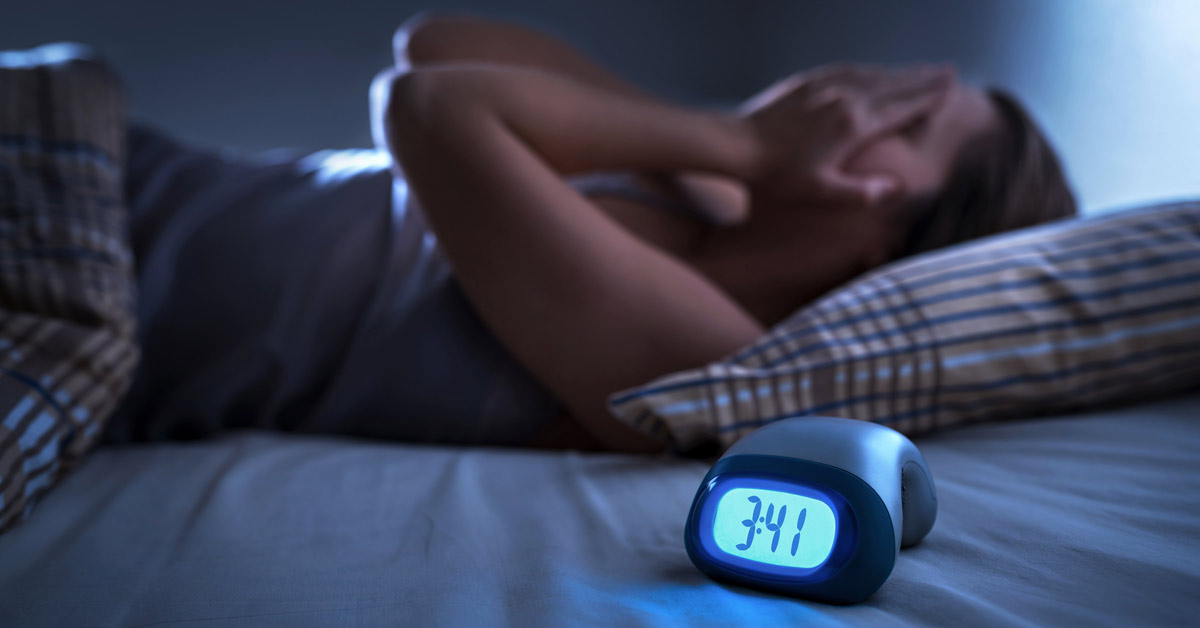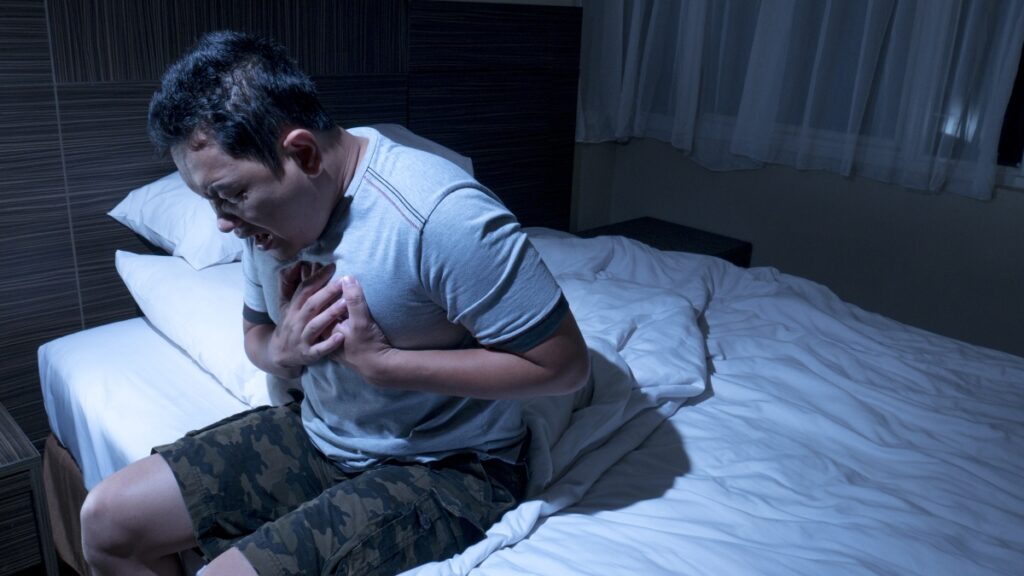The panic attack manifests itself as a sudden wave of fear of extreme intensity. These terrible sensations tend to peak within 10 minutes and then begin to diminish in intensity. The attacks occur in most cases during the day, but they can also happen during the night. Let’s check it out!
First Night Panic Attack

Although the first panic attack appears as “a bolt from the blue,” it usually occurs due to a prolonged stress period that lasts up to several months. Significant life changes such as a move, a new job, a marriage, the birth of a child, and the loss of a loved one can significantly influence individual psychological tension. Learning to identify sources of stress and manage it is enough to eliminate panic episodes for some people. In other cases, it is as if the stress of situations or significant changes in life puts some people in contact with their psychological vulnerabilities. When people predisposed to panic are faced with an increase in their responsibilities – for example, as a result of a job promotion or the birth of a child – they may begin to doubt the ability to correspond to their own or others’ expectations, to achieve results. Instead of focusing on how to handle the situation, the focus is on the possibility of failure. The emphasis on loss constantly undermines the sense of competence and self-efficacy. This process leads to emotional distress over time, which can lead to the development of panic attacks.
Panic Attacks at Night

Early signs may precede attacks, but many people can experience them suddenly and unexpectedly. This is the case with nocturnal panic attacks, which arrive entirely unexpectedly, and can even wake the person up, with truly devastating effects for those who have experienced them. Some people seek medical attention, fearing a heart attack. About 50% of panic disorder patients experience nocturnal panic attacks, but most seizures occur during the day. Research shows that only 10.2% of all panic attacks occur during the night, but people who experience them show more intense levels of worry about nocturnal seizures. A significant percentage of patients are frightened of the night and expect to lose control or fear serious consequences related to heart attack, heart attack, or other potential death threats. Of course, these are irrational fears. We know that most panic attacks are not the result of dreams. Recordings from polysomnography show that most attacks occur in the early stages of sleep (Stage II), not during the REM sleep associated with dreams. On the other hand, nightmares typically happen during the second half of the sleep period, which is why we are most likely to remember them.
Nocturnal Panic Attacks, Pavor Nocturnus and Sleep Apnea
The Panic Attacks Nocturnes be distinguished from Pavor Nocturnus and the sleep apnea. A night terror is a very specific sleep disorder, most common in children. It is described as a sudden awakening in tears, severe anxiety, and vegetative symptoms such as rapid heartbeat, sweating, and shortness of breath. This type of disorder typically occurs in a deep sleep (Stage IV). Awakenings caused by sleep apnea are not typically characterized by extreme anxiety. But this sleep disorder could impact the origin of nocturnal panic attacks, affecting heart rate and blood pressure. Chronic activation of anxiety during the night could be a dysfunctional protective mechanism against sleep apnea.
Causes Panic Attacks
The exact cause of nocturnal panic attacks is not yet known. Possible reasons include an increase in CO2 concentration (False Choking Hypothesis) or changes in the parasympathetic system due to autonomic dysfunction. Furthermore, nocturnal panic attacks can be conditioned by the events and circumstances experienced during the day, by the consumption of drugs or alcohol, and by the greater individual activation linked to the presence of an anxiety disorder. People who suffer from nocturnal attacks usually also have attacks throughout the day. It is complicated to calm down after waking up in a panic. Furthermore, the fear of subsequent panic attacks can hinder falling asleep or even prevent it, causing a general deterioration in sleep quality, the development of sleep disturbances, and an increase in stress levels. Although researchers and psychotherapists have not yet fully understood the exact causes of day and night panic attacks, it is possible to identify some common risk factors:
- Genetic factors, familiarity (family members with a history of panic attacks)
- Personality traits
- Stressful life events such as loss of a loved one, family problems, separation, divorce, job loss, and so on.
- Brain biochemistry
- Underlying psychological disorders such as social anxiety, phobias, etc.
Night Anxiety Symptoms
A panic attack is characterized by four or more of the following symptoms:
- sweating
- night tremors
- feeling of fainting
- nausea
- palpitations, tachycardia
- feelings of dizziness or light-headedness
- feeling of instability
- feeling of suffocation
- fear of dying
- a feeling of shortness of breath
- a feeling of suffocation
- fear of losing control
- chest pain or discomfort
- depersonalization or the feeling of being detached from oneself
- paraesthesia, or a feeling of tingling or numbness
- derealization, or a feeling of unreality
Some people may experience even fewer than the four symptoms listed, in which case it is referred to as a panic attack with limited symptoms.
How to Prevent Stress and Keep Anxiety at Bay?
To prevent panic attacks, it is essential to adopt a lifestyle that allows better management of stress, physical, psychological, interpersonal, and work. Here are some examples:
- Knowing how to use slow and deep breathing techniques
- Reserve a space to dedicate yourself to yourself and live positive experiences
- Learn relaxation techniques (e.g., yoga, autogenic training, muscle relaxation)
- Communicating with people close to us
- Meditate
- Exercise, even of mild intensity
Nighttime panic attacks are treatable. Most people who follow an individualized treatment plan achieve positive, long-term results.


